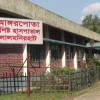How does a study tour by a retiring secretary benefit citizens?

We are surprised to learn that a senior secretary of the Local Government Division (LGD) returned home from a foreign "study tour" only a day before his retirement from civil service. This, obviously, raises the question: what benefit will the citizens obtain from the knowledge, if any, acquired by him during this trip? According to a report in this daily, all the expenses of his 10-day trip to the Netherlands and Spain were borne from the funds of three government projects.
The trip must have cost the country's exchequer huge sums of foreign currency amidst the ongoing strain on Bangladesh's foreign exchange regime, so we struggle to find any justification for the study tour of an official who was already on the verge of retirement. After the news broke out, some commentators have rightly called it "a parting gift". But in public records, this will definitely remain as a blatant wastage of public money. This is also quite unethical, according to a former cabinet secretary, who said that such study tours are meant for young officers who can apply the knowledge gained in nation-building projects—and surely not for a retiring bureaucrat who has no time to use that knowledge.
The officer in question, however, tried to justify his action by saying that the experience he had gathered can be of use in sectors like the WASA and LGED if they choose to use it. This sounds dubious. Also, how can someone become an expert on any subject after a 10-day study tour? Our report further states that the tour money came from the funds of three projects, namely Dhaka's Food System (DFS) Project, Emergency Multi-Sector Rohingya Crisis Response Project (EMCRP) and City Governance Project, but the high-level delegation had hardly anything to do with the stated purpose and apparent scope of the tour. This raises questions about the lack of transparency and accountability in the use of project funds that are intended to serve the public interest.
We strongly feel that such wastage of public money by government officials transcends all ethical bounds, and it must stop. In this connection, we appreciate the recent ban on unnecessary foreign tours imposed by the government and hope that it will entertain no exceptions. The government must be careful about how it uses the hard-earned money of the citizens to ensure its optimal benefits.

 For all latest news, follow The Daily Star's Google News channel.
For all latest news, follow The Daily Star's Google News channel. 








Comments